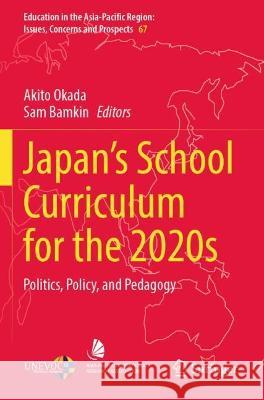Japan’s School Curriculum for the 2020s » książka
topmenu
Japan’s School Curriculum for the 2020s
ISBN-13: 9789811920783 / Angielski / Miękka / 2023
Japan’s School Curriculum for the 2020s
ISBN-13: 9789811920783 / Angielski / Miękka / 2023
cena 523,30
(netto: 498,38 VAT: 5%)
Najniższa cena z 30 dni: 501,19
(netto: 498,38 VAT: 5%)
Najniższa cena z 30 dni: 501,19
Termin realizacji zamówienia:
ok. 22 dni roboczych.
ok. 22 dni roboczych.
Darmowa dostawa!
Chapter 7 is available open access under a Creative Commons Attribution 4.0 International License via link.springer.com.











